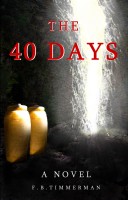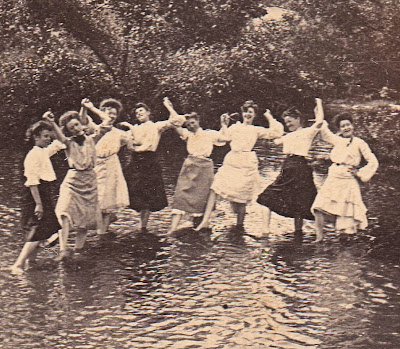As I mentioned in my recent post on homeschooling a child with Down syndrome, there were many books that helped me as I homeschooled my son with Down syndrome. Not all of them were “school” books.
There’s a certain amount of acceptance that parents of kids with disabilities must gain, and it takes a while to get there. Sitting down to work with your child makes you realize just how hard it is for him to learn things, and that can really get you down.
Some books have helped me understand that homeschooling him is a process that will go on in one form or another for his entire life. It’s not like it was with my older kids, where we worked together for a certain number of years and then sent them out into the world. This guy has a lot of hurdles in front of him, and while I try not to be negative, it was plain to me pretty early on that he would not attain anywhere near the level of education his siblings would. That was a pretty depressing realization for me, and I had to find encouragement from a multitude of sources, including books, in order to keep homeschooling him.
(Sometimes, when I got discouraged, I thought about what it would have been like for him in school, and that usually got me back on track. After all, who had time to sit patiently with him each day and work and play if not me? No teacher or aide would have had time to work with him one-on-one, which is what a distractible guy like him needed, and no teacher or aide could know him as well as I do, anyway.)
Keep in mind that while these books helped my son and me, that doesn’t mean they’ll work for all parents homeschooling kids with Down syndrome or other developmental disabilities. Children differ in temperament and ability, and so do parents. There’s a wide range of abilities among children with Down syndrome, and they develop at different rates, although most do develop more slowly than your “typical” child.
In my son’s case, there are other issues. Due to central apnea during his infancy, he may have sustained minor brain damage. His doctor said we could run a lot of expensive tests to find out for certain if and where such damage occurred, but he felt that we’d be spending a whole lot of money without being able to change things. We agreed. But what our son went through makes it harder for him to learn certain things. Even his long-time speech therapist said some of his speech patterns are not typical of Down syndrome.
So he is a unique individual, and so am I, thus don’t rely on this booklist to cure what ails you and your child. On the other hand, I’ve always felt that if I learned one useful thing from a book, it was worth reading. So hopefully, you will find at least some tidbits in these books that will make them worth your time.
(Do keep in mind that the curricular-type books here are not the only things I used to homeschool my son. We also did a lot of hands-on work. But the purpose of this post is to share books we’ve found helpful.)
Christian Homes and Special Kids by Sherry Bushnell and Diane Ryckman
This book is a great resource and encouragement for all parents homeschooling their child with special needs, and I’m not just saying that because there’s a chapter about our family in the book. It’s just a book written by parents who want to share their experiences and their favorite resources. ISBN-10 09744332-0-9
Available at http://www.nathhan.com
Helps for Special Education Teachers by Eileen Shaum
I bought this book from Rod and Staff, one of my favorite sources for homeschooling books. It helped me establish a well-rounded foundation for my work with Josh. It helps you set goals and gives you activities for reaching those goals.
Available at http://www.rodandstaffbooks.com/item/19031
Rod and Staff’s Preschool Series of Workbooks
We bought and worked through the entire series twice, that’s how much we liked these workbooks. Lots of cut-and-paste educational activities. Pages are nicely illustrated (farm animals, not licensed characters!) without being too busy and cluttered as many workbooks are. I used this series with dd17 when she was little and wanted to do school with the big kids, so that’s how I knew about them when dsds15 reached that developmental level. I can’t say enough about these workbooks!
Available at http://www.rodandstaffbooks.com/item/10020
NOTE: You can usually find Rod and Staff products at homeschool conference vendor halls. I highly recommend their products for all children.
Teaching Reading to Children With Down Syndrome: A Guide for Parents and Teachers (Topics in Down Syndrome) by Patricia Logan Oelwein
Excellent resource! This book offers complete instructions for building a reading program for your child. By the way, I have been to two of Ms. Oelwein’s seminars and learned so much. If you get the chance to attend one, go! You won’t be sorry.
Teaching Math to People With Down Syndrome and Other Hands-On Learners: Basic Survival Skills (Topics in Down Syndrome) Book 1 by DeAnna Horstmeier, Ph.D.
Personally I didn’t find this book as useful as Patricia Oelwein’s book, but your mileage may vary. I do like the fact that this book is intended for people of all ages with Down syndrome, not just children. I attended Dr. Horstmeier’s seminar and enjoyed her stories about her adult son with Down syndrome.
Communication Skills in Children With Down Syndrome: A Guide for Parents (Topics in Down Syndrome) by Libby Kumin, Ph.D., CCC-SLP
Filled with ideas for encouraging proper speech development in your child.
When Slow Is Fast Enough: Educating the Delayed Preschool Child by Dr. Joan Goodman
An eye-opening book that helped me understand exactly what early intervention is all about.
Teacher Created Resources
My son is a workbook guy: he gets great joy from finishing a page and getting a star on it. We have had success with some of TCR’s math workbooks. I love how they have several workbook pages for each step in the learning process. I photocopied the pages over and over and over until he got the concepts (it can take a long time).
You can buy TCR books online, but I recommend going to a teacher store and flipping through them yourself to see which might work for you and your child. If that’s not convenient, you can download many of their titles as eBooks at: http://www.teachercreated.com
Here are two of their books that we really used a lot:
Take It To Your Seat Learning Centers published by Evan-Moor
These pre-made manipulative activity books called “Take It To Your Seat” are really good–clever learning projects all ready to be cut out, laminated and used regularly. Two we enjoyed: Take It to Your Seat Math Centers, Grades K-1 and Take It to Your Seat Phonics Centers, Grades K-1.
Buki Books
We love Buki Books! They’re educational but so much fun that kids don’t mind. There are dot-to-dot books up to 1-150 (painless way to learn number sequencing), Calc-U-Color books (color by number where you have to figure out the number first using addition or subtraction), maze books and more. They have several age levels for each type of book. Once again, I found these in teacher stores, but you can also find them online, like this particular favorite of my son’s: Mosaic Hidden Pictures. In teacher stores, they’re often found on freestanding kiosks. They’re very colorful and hard to miss!
Betty Lukens Felt Activity books (BettyLukens.com) Great for teaching Bible stories to kinesthetic learners. At 15 my son still liked looking at these books and arranging the felt pieces on them. I think the fact that they’re realistic-looking and not babyish helps.
50 Bible Paper Pop-Ups: 3-D Visuals for Hands-On Learning Fun by Robin S. Parimore and Lynne Marie Davis
We worked our way through this book for a year. Requires cutting skills. I combined each project with the appropriate Bible story.
The Imperfect Homeschooler’s Guide to Homeschooling by Barbara Frank
My book has a chapter in it on homeschooling your child with special needs.
The Dance Goes On by Roberta Bandy
The true story of how the birth of a child with special needs grew the faith of a young couple. We knew the Bandy family for years; their story is so encouraging!


